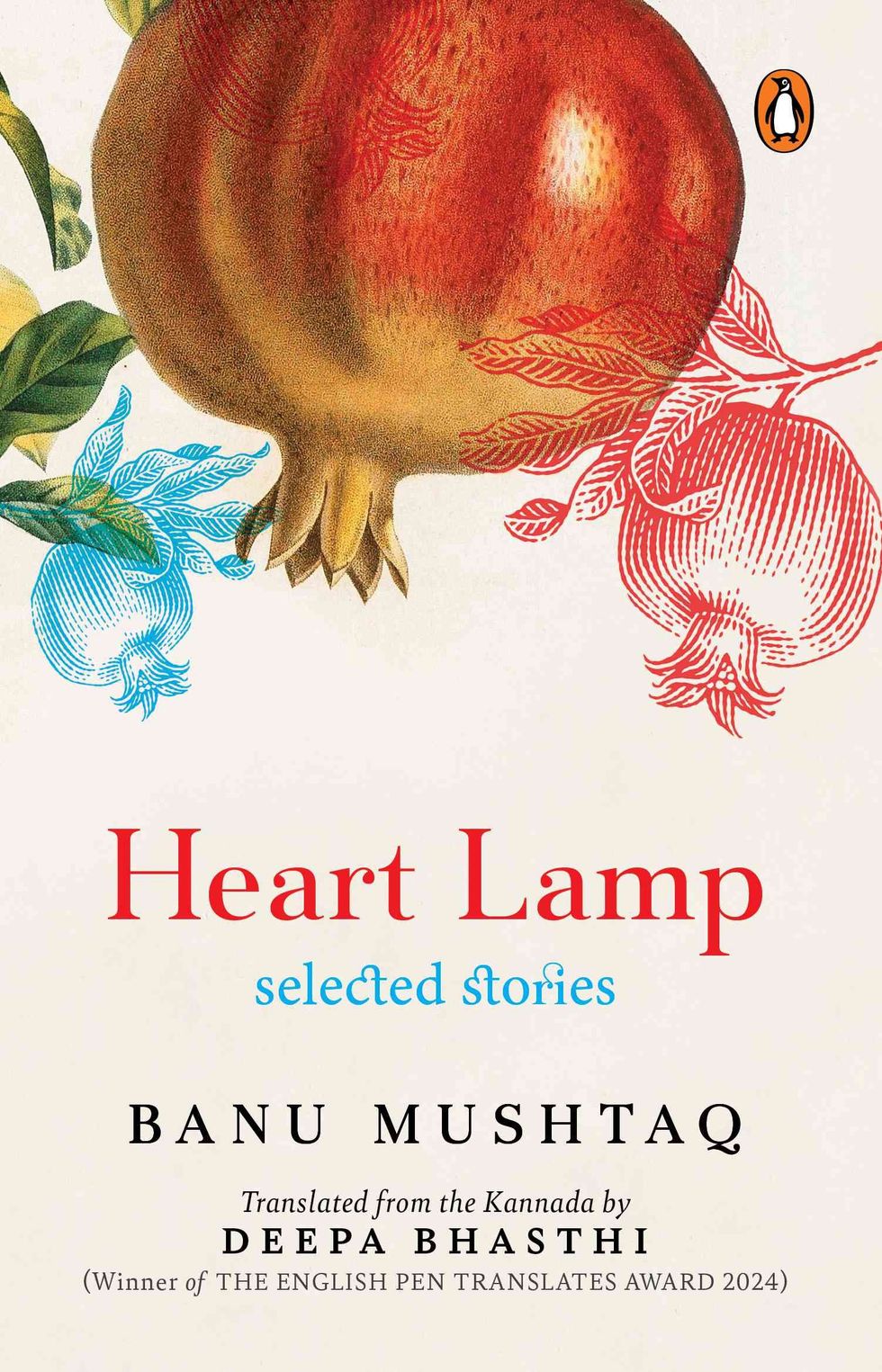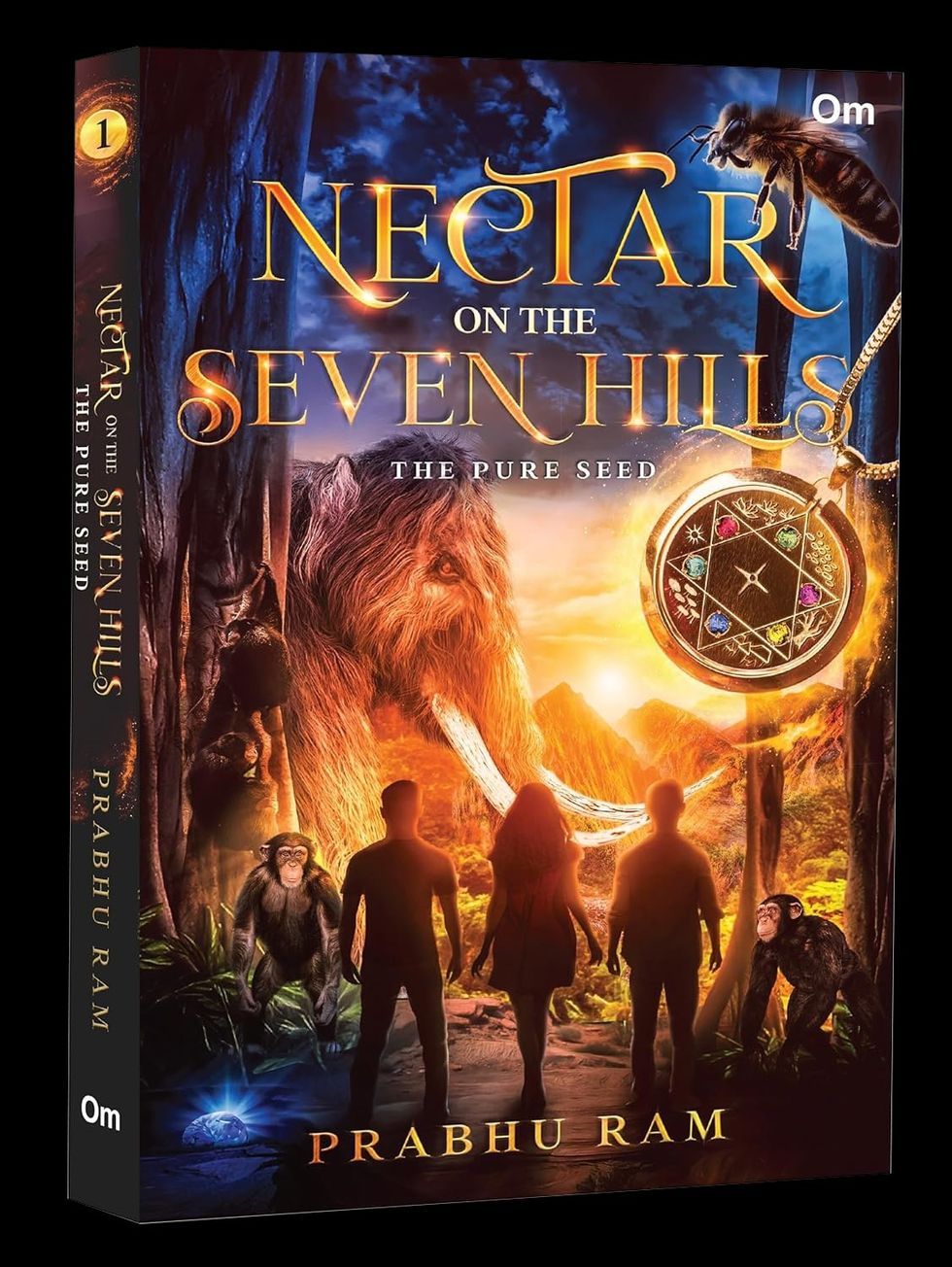TRANSLATION and writing are similar as both involve interpreting and expressing something that already exists, the English translator of Heart Lamp, shortlisted for the International Booker Prize, said.
A collection of short stories by Banu Mushtaq, a Karnataka-based writer, activist and lawyer, the book was translated from Kannada to English by Deepa Bhasthi. It captures the daily lives of women and girls in Muslim communities in southern India through 12 tales written between 1990 and 2023.
Heart Lamp’s selection on the shortlist for the International Booker Prize 2025 was announced in London last Tuesday (8).
“When you’re translating a work, you’re translating something that already exists. And when you’re writing something new, you’re also translating – an experience, a thought, or an event. It’s about using the tool of language in whatever ways are available,” Bhasthi told Eastern Eye.
Kannada is the language spoken in the south Indian state of Karnataka, of which Bengaluru is the capital.
It is the first time a Kannada title has made it to the shortlist of the International Booker Prize.
Bhasthi, 41, who studied journalism at university, said, “Kannada is my mother tongue, so it’s not a difficult language for me. But translation brings its own challenges. It’s not simply about substituting one word for another. It’s about carrying an entire culture across and making it live in another.”
She recalled how she got involved in the book, saying, “Banu approached me around three years ago. At the time, I hadn’t read much of her work – just a couple of stories here and there – but not in any depth.
“When I finally read them, I found them incredibly compelling, deeply relevant, and strikingly universal in their themes. I knew this was something I wanted to take on, simply because I genuinely enjoyed the stories. That, for me, is one of the key criteria when choosing a translation project. I connected with these stories and felt a desire to share them with a wider audience.”
Bhasthi added, “Generations of women around the world have always resisted the violence of patriarchy and religious fanaticism. But what’s remarkable is that they’ve done so while holding on to their sense of humour, their resilience, and their spirit of dissent.
“Heart Lamp is a collection that pays tribute to such women. It celebrates those who, despite being bound by the weight of patriarchal and religious expectations, continue to live fully – resilient, strong, and wonderfully funny lives. It’s a celebration of women like that.”
Bhasthi added, “I was very clear from the beginning that I had complete freedom – both in choosing which stories I wanted to translate and in how I translated them. Of course, Banu was available if I needed to ask questions or clarify something about the text. But, otherwise, the translation is entirely my own independent work.”
Bhasthi said she chose Heart Lamp because very few books by female Kannada writers have been translated into English.
“I’m drawn to women’s writing, partly because translation itself is an under-represented field, and very few works from Kannada are translated into English, to begin with. Among those, the number of women writers who get translated is even smaller – whether in Kannada or in other languages,” she told Eastern Eye from her home in Madikeri, a scenic hill town in Karnataka.
“I find myself gravitating towards women’s writing, as it often resonates more closely with my own experiences. Even though Banu’s stories are rooted in a particular social context and within a specific community, their themes are remarkably universal.
“These are women’s experiences that echo around the world – not just in India, or south India, or within the Muslim community. That universality in her storytelling is what captivated me from the outset.”
Bhasthi is optimistic that the Booker nomination would generate interest from international publishers, not only for works in Kannada but also for other Indian reg i o n a l languages. For her, the moment carries a deeper sense of pride.
“Many people in the UK and US don’t even know how to pronounce ‘Kannada’. They have no awareness this language even exists – despite it being spoken by millions around the world. It’s one of the oldest languages in the Dravidian family, with a long and rich literary history.”
She believes translation plays a vital role in changing this narrative. “It takes these lesser known languages out into the world and says ‘Hey, look at this culture. There’s so much happening here.’”
Bhasthi hoped the spotlight on Heart Lamp will bring attention not only to Kannada, but also other languages in India.
“When people think of India, they usually think of Hindi or Urdu, maybe Bengali or Tamil. But we have more than 700 languages. That needs to change,” she said.
Interestingly, she pointed out that many Kannada speakers cannot read or write the language. “They’re happy to find something in English. They speak Kannada, but if they studied in English-medium schools or grew up in cities, or abroad, they often don’t use Kannada daily.
“So I don’t just translate for nonKannadigas. I translate for people from my own language community too,” Bhasthi said.
For her, this linguistic gap is not a limitation, it is an opportunity.
“I’m glad translation as a field is getting so much attention these days. It’s a good thing. Not just in Kannada, there are incredible stories in all our Indian and south Asian languages. That richness needs to be shared.”
She is an avid reader of translated literature herself. “Some of the best writing I’ve read recently has been in translation. The only reason I can access those stories is because someone translated them. It opens up the world.”
Asked if the Booker nomination would enhance the appeal of non-English and non-fiction work, she said, “I hope so. It reminds people just how many languages exist globally. Europeans might know French, German, Spanish, and so on, but how many of them have accessed writing from the global south?”
She extended the question to Indian readers as well. “Even among ourselves, how many of us have access to literature from neighbouring states, if not for translation? The cultural wealth that translation brings is incredible.”
Her advice to aspiring young writers and translators was to “read widely, because this is something many people overlook. They want to pursue writing or translation, but often don’t read enough. I would also advise reading across genres. There’s a common perception that popular fiction isn’t particularly valuable, but in reality, when you read, you’re learning language. So, I would say, read as broadly and extensively as you can.”
Published by Penguin Random House India, Heart Lamp is one of six titles to make it to the prestigious list. Each shortlisted title will receive £5,000, shared between the author and translator. The winner will be announced on May 20 at a ceremony set to be held at the Tate Modern in London.



















 Naeli and the secret song
Naeli and the secret song
 A compelling premise, layered and unpredictable charactersAMG
A compelling premise, layered and unpredictable charactersAMG Anyone who enjoys a gripping story with a diverse cast and unexpected twistsHarperFiction
Anyone who enjoys a gripping story with a diverse cast and unexpected twistsHarperFiction
 He says "immigrants are the lifeblood of this country"Instagram/ itsmetawseef
He says "immigrants are the lifeblood of this country"Instagram/ itsmetawseef This book is, in a way, a love letter to how they raised meInstagram/ itsmetawseef
This book is, in a way, a love letter to how they raised meInstagram/ itsmetawseef
 Ram creates a global narrative tapestryOm Books International
Ram creates a global narrative tapestryOm Books International